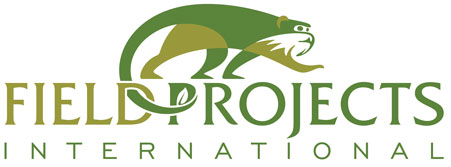Primate Behavior & Movement Ecology

Participate: Primate Behavior & Movement Ecology
Applications for the 2025 field season are CLOSED
Stay tuned for 2026!
Quick Facts
- Start Dates: May 25th, June 15th, July 6th
- Minimum Commitment: 5 weeks (in special cases we will consider fewer)
- Location: Los Amigos Biological Station, Peru
- Application Deadline: April 14 OR until remaining spaces are filled
- Program Fee: $2,450 for 5 weeks; $490 each additional week (Fee includes food and lodging at the field station, training and use of field equipment. Fee does not include transportation to field station).
- More information in the FAQ below the program description.
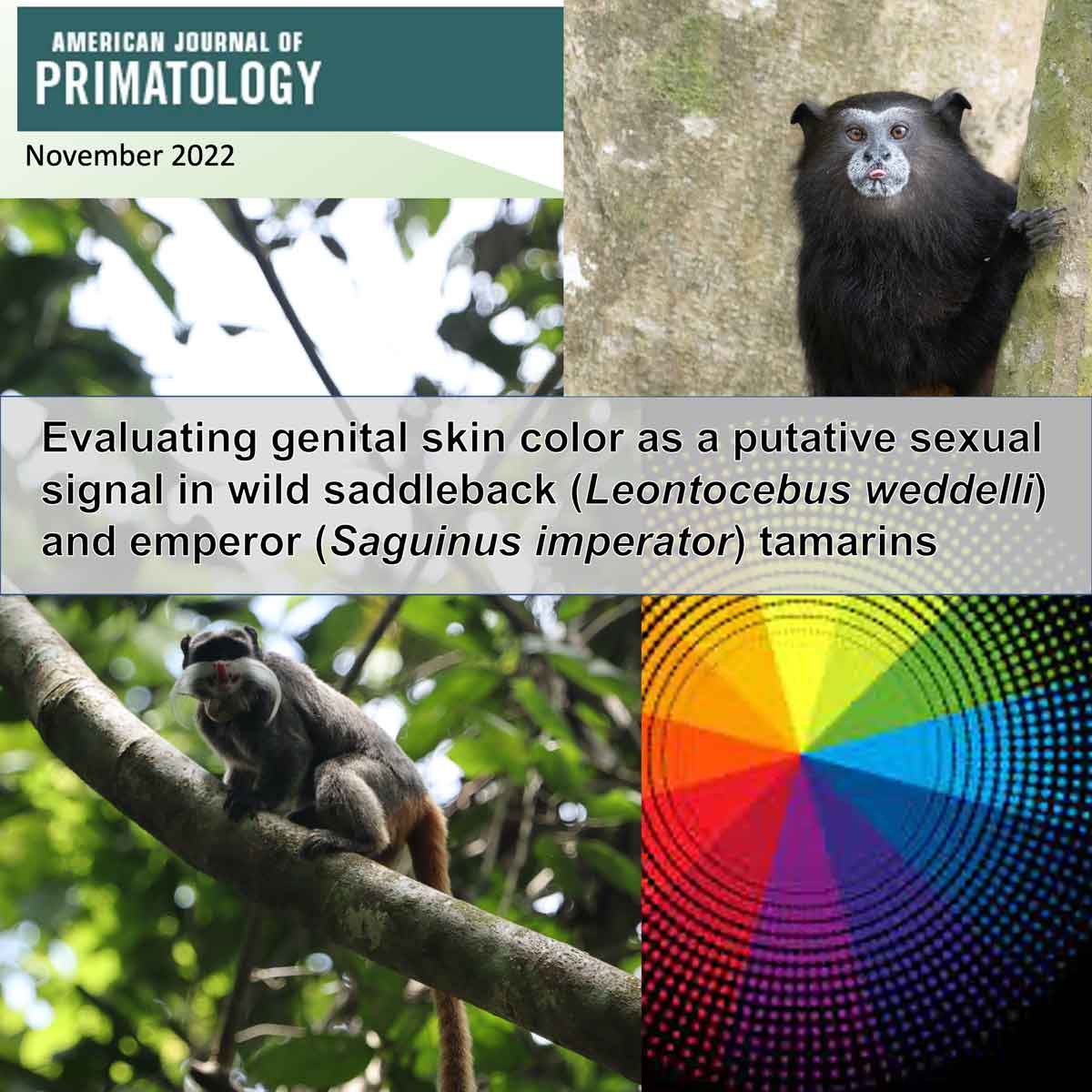
Manuscript on communication & sexual signaling
Moreira, L. A., Watsa, M., Erkenswick, G., Higham, J. P., & Melin, A. D. (2022). Evaluating genital skin color as a putative sexual signal in wild saddleback (Leontocebus weddelli) and emperor (Saguinus imperator) tamarins. American Journal of Primatology, e23456.
PROGRAM DETAILS
Since 2009, the smallest rainforest primates at the Los Amigos Biological Station have been monitored in a unique long-term program spanning 17 social groups, more than 300 unique animals, and two species: the saddleback tamarin (Leontocebus weddelli) and the emperor tamarin (Saguinus imperator). You would be joining this established primate research program to assist PIs in behavioral follows of target social groups in addition to..
- following the other 9 species of primate at this field site to record group size, movement, and collect noninvasive samples
- maintain a grid of UHF radio nodes distributed at regular intervals in the forest to record animal movement and survival year-round.
You will become adept at conducting daily follows of several target groups, with and without radio telemetry technology. Full day follows (i.e.. following a group from sleep tree to sleep tree) will be expected 1 -2 days per week. Data collection will consist of scan sampling of behavior at fixed intervals, marking and collection of fruits from feeding trees, opportunistic collection of fecal samples, and recording of spontaneous reproductive behaviors such as mating and scent marking. If newborns are observed (tamarins only), focal observations of adult parents and alloparents may be performed.
Anticipated Outcomes
- Movement data will be associated with forest structure parameters acquired by high density lidar imaging.
- Feeding behavior data and samples will be incorporated into studies on gut microbiome and natural seed dispersal.
- Social behavior will be used in a long-term study on cooperative breeding behavior and reproductive output.
These positions will provide incumbents with invaluable experience in conducting primate field work, and may coincide with opportunities to observe primate capture-release techniques. Team members operate in pairs (minimally), following primate groups off-trail. The habitat is variable, broadly consisting of terra firme and varzea habitat. Within these areas are palm swamps, oxbow lakes, bamboo patches, primary and secondary growth forest. The field site is privately protected lowland Amazonian rainforest, contiguous with a 300K hectare conservation concession.
Training and Skills
By the end of this program, you will have gained a number of skills essential to the study of primate behavior and non-invasive monitoring. These include the ability to:
- Comfortably and safely work and move on and off trail systems in a Neotropical rainforest setting.
- Identify tamarin species by sight and sound.
- Conduct full-day behavioral follows of wild primates using focal, scan, and ad-libitum data sampling methods.
- Use radio telemetry equipment to locate tagged individuals and groups.
- Opportunistic collection of fecal and urine samples, including preservation technique.
- Mark feeding trees and collect fruit samples.
- Clean-up and maintain multiple data types in an organized way for subsequent analyses, including:
- Spatial data
- Habitat data
- Behavioral data
- Biological sample metadata.
Who Should Join?
- Those with a strong interest in primates, including those in a field of study related to anthropology or biology.
- Those who want to improve primate tracking and monitoring skills.
- Those who want to work on a modern program working to introduce significant improvements to conservation technologies.
Minimum Requirements
- You must be at least 18 years of age by the time the training program begins (there is no upper age limit).
- You must be fully vaccinated against COVID-19.
- Participants must be in good physical condition, with the capability to walk 4 miles a day.
- Participants must be willing to be flexible about their weekly and daily schedules due to the nature of the work and potential weather constraints.
Preferred Skills
- Participants should demonstrate a grounding or strong interest in wildlife monitoring and biology.
- Previous field experience is not required, but previous behavior research experience is a plus.
- Participants will not be discriminated against for medical conditions they might have; we must determine that being on this project will not pose an immediate risk to their health
- Participants must be willing to maintain long hours in the field, and return to complete data entry in the evenings.
- Sometimes we wait and are unsuccessful – this is the nature of the work. Participants must demonstrate patience
- Participants must be reliable – when a team is assigned to work with a group of animals, days of planning go into the execution of the protocol. Carelessness and tardiness on the part of the participant could jeopardize the entire project.
- Participants must exhibit a willingness to adjust your schedule to primate daily activity patterns. This can require waking up early, sometimes by 4 or 5 am, and going to bed early, 8 or 9 pm.
Principal Investigators
Dr. Mrinalini Watsa initiated the program in 2009 during her doctorate with a primary interest in studying genetic chimerism and reproductive biology.
Dr. Gideon Erkenswick formally joined the effort in 2012 and added a research angle on parasite ecology.
Dr. Efstathia Robakis joined in 2015 for her doctoral research on primate vocal signaling. Also in 2015-2017, Alexandra Sacco conducted a masters on immune marker validation.
Dr. Alice Poirier joined this program in 2017 on the topics of primate olfaction. Also in 2017, Gustav Steinhardt (UC Berkeley) began taking lead on analysis of primate movement behavior.
Dr. Amanda Melin (in conjunction with Dr. Alice Poirier and graduate student Lais Moriera) joined in 2018 to work on visual signaling.
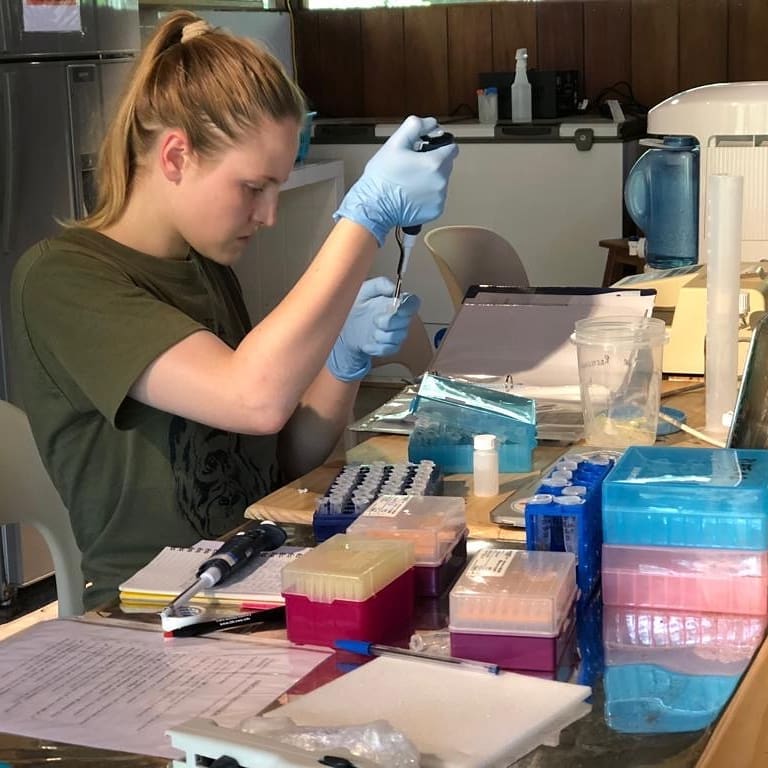
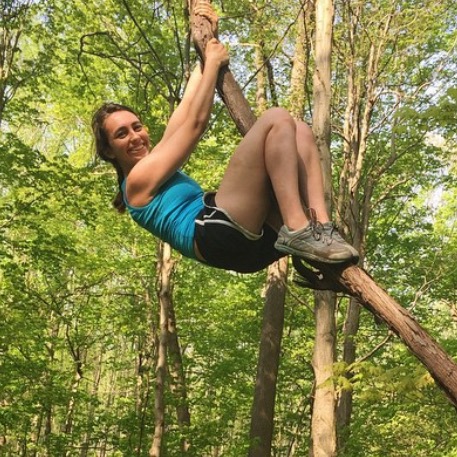
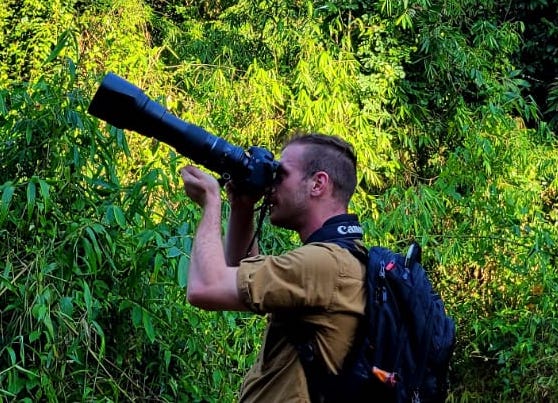
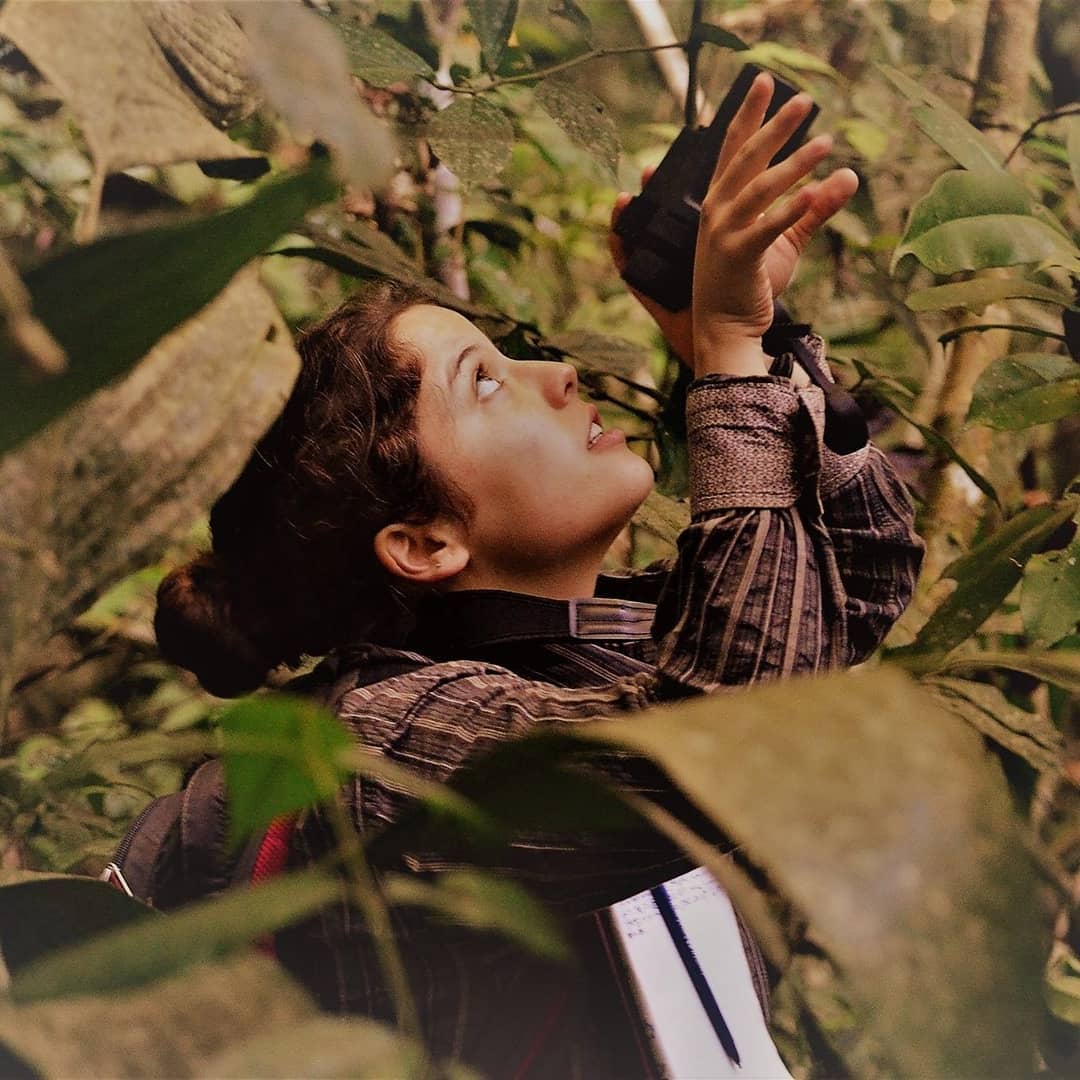
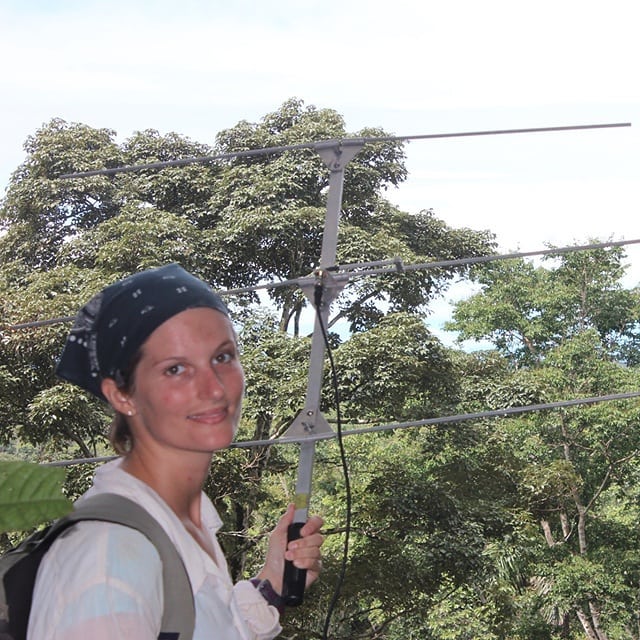
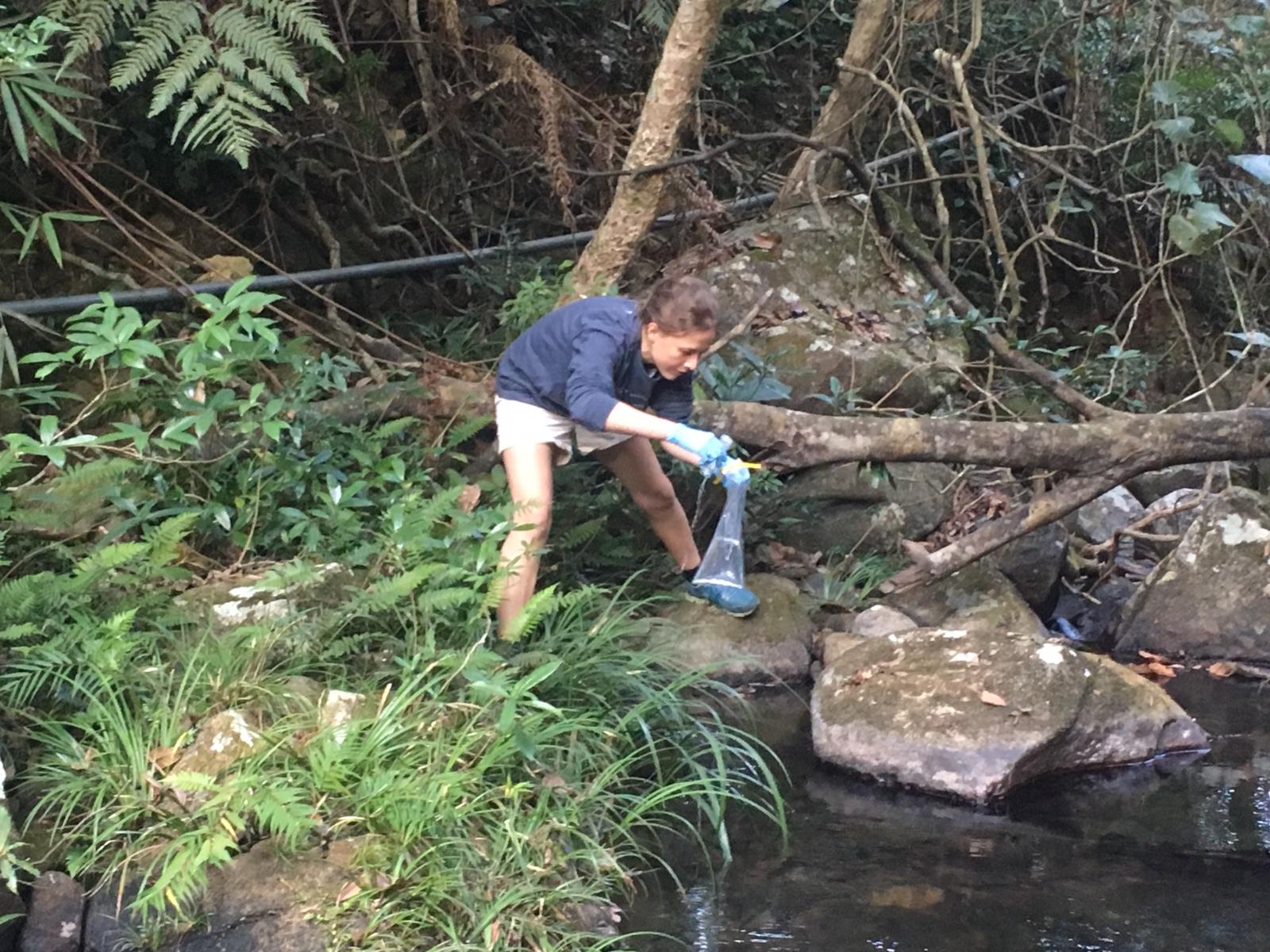
Frequently Asked Questions
1. Apply online here. You will need a CV/resume and two references.
2. Once we hear from your references, we will schedule an interview with the principal investigator of your desired project
3. If accepted, you will be notified within 1 week
4. Upon acceptance, gain student access to online training modules to get prepared before you arrive.
5. Turn in medical info, vaccination record, liability waivers, etc.
6. See you in the field!
If FPI cancels a program due to complications related to COVID-19, participants would receive all but 1.5% of fees already paid. The 1.5% represents the credit processing fees charged to FPI for accepting online payments.
Our cancellation policy is:
- 30 days or more before your start date: 45% of the program final fee refunded. Please note that the down payment is not refundable.
- Less than 30 days from your start date: no refund is possible
Yes, but it would have to be approved by your university, who will also bill you for the credit hours. If approved, there is also an additional $250 fee that serves as a mentorship fee for the FPI senior scientist mentoring you through this project. From there, it is just a matter of coordinating between your university mentor and the FPI researcher.
In order to train our research teams, it is necessary that everyone arrives on specific start dates and be trained together to stay on pace with their cohort.
In addition, we arrange to meet the arriving groups and escort them to pick up any last-minute supplies before leaving very early the following morning to the field station. Getting to the field station requires travel overland to a small town called Laberinto (~45 minutes), then a 4-5 hour boat ride upriver. All of this would be difficult for most participants to do alone, which is why we ask that you arrive on fixed program start dates.
If you REALLY cannot make a particular start date, don’t abandon hope – email us and we can do our best to accommodate you.
There are pretty firm minimum requirements for each long-term research training program (typically 5 weeks). These are firm because each participant must be trained, during which time the data they collect cannot be relied upon entirely.
On the other hand, for most programs you are welcome to apply for stays that are longer than the minimum period, which is common among our student researchers. This can be arranged beforehand, or even sometimes in the field if accommodation is available at the field station.
If you have a special circumstance and want to request a shorter program time, you may contact us and we will discuss it with the lead investigators on your chosen project. There is no guarantee, but in the past we have been able to accommodate on occasion.
Our courses have fewer enrollment requirements, and we strongly encourage anyone to apply. The long-term programs involve becoming an integral part of a research team, and thus are more competitive.
You absolutely can apply to both a field course and a long-term training program if the dates will line up! In fact, if you are accepted into the long-term program you can attend a field course for a lower fee (typically a $400 discount)
No, you do not need previous research experience. These are training programs designed for participants at all levels. It can be hard to acquire field experience, so we balance our teams with veteran researchers and those new to the world of field research. We seek bright and enthusiastic candidates with the right temperament to work in this challenging environment.
The cost to participate includes:
- Lodging and all meals at the field station
- Specialized equipment and supplies necessary to conduct training and research activities.
Program fees do NOT include:
- Transportation to the field station from Puerto Maldonado
- staff will meet with you in Puerto Maldonado and guide you to the field station, but you will cover this cost (around $30) on your own
- Lodging and meals in Puerto Maldonado
- Health or travel insurance
- Required vaccinations
- Binoculars or other personal field equipment
A large majority of the fees paid to our training programs cover lodging fees charged by the host field station. Importantly, at the Los Amigos Biological Station lodging fees not only support the cost of running and maintaining a remote field site, but contribute to the larger mission of their parent NGO (Association for the Conservation of the Amazon Basin) to protect conservation areas, monitor deforestation, maintain wildlife corridors, and more.
Peer-to-Peer Fundraising
We are now able to offer a peer-to-peer fundraising program for research assistants. Once accepted, you would be able to (optionally) create a shareable profile on our platform. This is a team-based initiative, so half of your raised funds will go toward your own program fees, while the other half will go into pool to be split evenly among all program participants who had at least 5 donors. More details will be available during (and after) your interview.
Scholarships
We offer three scholarships to our programs & courses in field biology and conservation.
All Scholarships Cover:
- Meals and lodging at the field station
- Basic equipment required to attend the course (not including binocular/boots)
Scholarships Do Not Cover (unless specifically noted):
- Transportation to the local contact point.
- Binoculars, boots, basic medications, backpacks, or other personal items
- Vaccinations and medical insurance. All participants must provide proof of medical insurance before travel.
*Ensure you meet the qualifications for the scholarship you are applying for before submitting an application.
Other Options
If you require help with the cost of the program, there are other options that you might pursue as well. You could start by contacting the Office of Undergraduate Research of your school, or request professional development support from your employer. Here you can explore what is available through your college/place-of-work, as well as through external funding sources. Many universities have SURF (Summer Undergraduate Research Fellowship) programs, which may provide stipends for students to pursue independent research. Please note that if you do find any kind of research-related funding — as many RAs have in the past — it will need to be applied for in conjunction with us, on research projects that we approve. In this case, one of our principal investigators will consult with you about developing a project that is feasible.
All participants are required to show proof of medical insurance before joining us in the field. Many travel insurance providers can assist with emergency medical coverage and emergency medical evacuation. Be certain that COVID-19 is covered in your plan.
You will have to provide proof of a normal vaccination record (as listed here by the CDC). For travel to Peru, we require that you also get the following vaccines:
- Typhoid
- Yellow Fever
- Tetanus
- COVID-19 (no exceptions)
- Rabies pre-exposure series (only for those in programs involving wildlife handling of mammals.)
If you have the flu shot for the year, all the better. Find a travel clinic and get your shots EARLY.
A fully independent research project is not feasible in this program due to time constraints, as well as the fact that all research projects must be sanctioned by the field station, approved by an IRB/IACUC, and have the required permits from the relevant government agencies in Peru. All of our research projects have obtained the necessary approvals and permits, which cover the specific data we collect and how we use it.
That said, some candidates may have an opportunity to win a grant that will fund their program fees and travel, and that grant requires them to submit a research proposal. If this is your situation, we may be able to work with you on a proposal. You can contact us at info@fieldprojects.org and let us know your situation. Then after you officially apply to the program, you can discuss this in greater depth with one of our senior scientists.
We cannot accommodate completely independent projects, but we can assist you with finding a subset of our samples or data that has not yet been fully analyzed, which you could potentially develop further under our supervision.
Yes, you can. We do not give co-authorship for collecting data alone, but we offer interested students the opportunity to work on data analyses after the summer research program, that could lead to co-authorship in the future. Many of our former field team members have gone on to become research collaborators.
Our programs will proceed as planned unless global travel restrictions prevent our team from reaching the field site, or the field site is shut down.
In the event of an ongoing pandemic, quarantine and testing protocols will be observed to ensure that no one exposes another team member or animal to the infectious agent. In addition to our programs protocols, all persons will have to comply with national travel regulations. In 2021 & 2022 during COVID-19, our field station qualified as a quarantine site since it met all government-approved COVID protocols, and has the capacity to maintain social distance between all visitors.
Our enhanced protocols in laboratory and wildlife handling situations are designed to meet or exceed scientific best practices. They are drafted in conjunction with our Peruvian partners (Conservacion Amazonica), Peruvian authorities (SERFOR) and Institutional Animal Care and Use Committees (IACUC) of our affiliate research universities. Broadly speaking, they will involve strict use of face masks, N95 masks, and gloves during specific activities.
Participants will receive detailed instructions on our procedures prior to departing for the field site.
The first signs of suspected symptoms or a temperature above 100 degrees Fahrenheit should be reported immediately to the field station managers and FPI senior scientists. They will have protocols for isolating symptomatic guests, arranging viral testing, notifying those you have been in contact with, and evacuating you to the nearest hospital if necessary.
(Note that travel to a hospital and any care there is at your own cost; make sure your insurance policy covers this.)
The nearest healthcare facilities are in Puerto Maldonado, which is approximately 4-5 hours downriver from our field site. In that city, our Peruvian partners have a recommended doctor certified by MINSA (the Ministry go Health). There are also other private and public healthcare options. The private facilities are more expensive (one of the reasons we require participants to have travel medical insurance), but they will likely be able to treat patients faster if public facilities are full.
The second option would be in Cusco, which is approximately 10 hours by car from Puerto Maldonado. There are more clinics in Cusco than Puerto Maldonado.
*While everyone will have their temperatures taken upon arrival by an infrared thermometer, we suggest that participants bring their own thermometers in their first-aid kits, and check themselves daily.
If a person must leave the field station to get treatment and recover from COVID-19, they will be permitted to return after 7 days with a negative antigen test. A negative molecular test will let someone back to the station after 14 days.
Location: 443 Old Via Rancho, Escondido CA 92029
Phone: +1 (314) 649-8636

